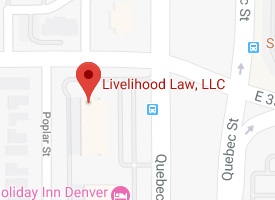
Updates to the Colorado Wage Act Go into Effect Today August 6, 2025
The Colorado Legislature was busy at work in the first half of 2025, passing several bills that directly impact you and your rights in the workplace. The first step in protecting yourself against illegal workplace practices is knowing your rights and we want to make sure you are kept in the loop.
Here are some key highlights that you should be aware of:
House Bill 25-1001 (effective August 6, 2025) makes several amendments to the Colorado Wage Act:
-
- This bill expands the definition of “employer” for purposes of wage and hour laws to include an individual who owns or controls at least 25% of the ownership interest in an employer.
- How this affects you: Workers can now pursue individual owners directly (if they meet the 25% threshold) for wage recovery. This should make anyone with a 25% ownership interest in a business even more motivated to comply with wage laws out of fear of personal liability.
- Allowing DLSS (Division of Labor Standards and Statistics) to waive the penalty for an employer’s failure to pay claimed wages in certain cases.
- How this affects you: The state division which handles claims for unpaid wages now has the discretion to waive automatic penalties against employers found to owe wages in certain circumstances if the division believes waiving penalties will ultimately increase the chances that the affected employee recovers something, instead of nothing.
- Requiring DLSS to publish violation citations on its website.
- How this affects you: This increases transparency, allowing the public to see which employers have been found liable for violating Colorado wage and hour laws. Ultimately, this will discourage employer misconduct, support organization for legal actions against employers who break the law, and empower job seekers to find employers who prioritize following the law over company profits.
- Providing for fines for misclassifying non-employees.
- How this affects you: Basically, this targets companies that intentionally “misclassify” their workers as non-employees, often times calling them “independent contractors,” to avoid paying these workers for legally required things like minimum wage/overtime, payroll taxes, worker’s compensation, unemployment insurance, and health and safety protections. By fining employers who purposefully misclassify their employees, this will protect employee benefits and job security, empowers state officials to ensure wage and labor laws are followed, and raise public awareness on employers that choose to violate state law and cheat their employees out of benefits/pay. This will especially help industries like trucking, construction, and gig-work.
- This bill expands the definition of “employer” for purposes of wage and hour laws to include an individual who owns or controls at least 25% of the ownership interest in an employer.
House Bill 25-1328 (effective August 6, 2025) implements recommendations made by the Direct Care Workforce Stabilization Board, including:
-
- Requiring DLSS to collaborate with the board and other entities to establish a comprehensive “know your rights” (KYR) training for direct care workers and requiring direct care employers to document each direct care worker’s completion of the training.
- How this affects you: For direct care workers like home health aides, personal care assistants, nursing home staff, etc. this would require employers to hold trainings on workers rights and ensure the completion of said training happens with all workers. This will not only ensure that direct care employees know their wage and labor rights, but will also ensure that direct care employers comply with state and federal laws. This will empower direct care workers to hold their employers accountable under the law.
- Requiring DLSS to collaborate with the board and other entities to establish a comprehensive “know your rights” (KYR) training for direct care workers and requiring direct care employers to document each direct care worker’s completion of the training.
Senate Bill 25-128 (effective May 29, 2025 – already in effect) amends the Agricultural Labor Rights and Responsibilities Act, repealing part of the law that gave agricultural employee’s access to service providers on private land (farms, ranches, etc.), and prohibited an employer from interfering with a worker’s access to service providers through remote channels on the employer’s property.
-
- How this affects you: Agricultural employers can now legally block their employees from accessing service providers (like legal aid, health providers, labor or union organizers, translation services, etc.) while on private land either in-person or remotely (by phone or internet in general). Unfortunately, this will make it harder for agricultural workers (namely migrant workers) to access professional/legal help, making it harder to organize labor efforts for improvement and make it harder to report abuse. If this affects you specifically, be sure to leave your employer’s privately owned land before seeking legal or professional services.


